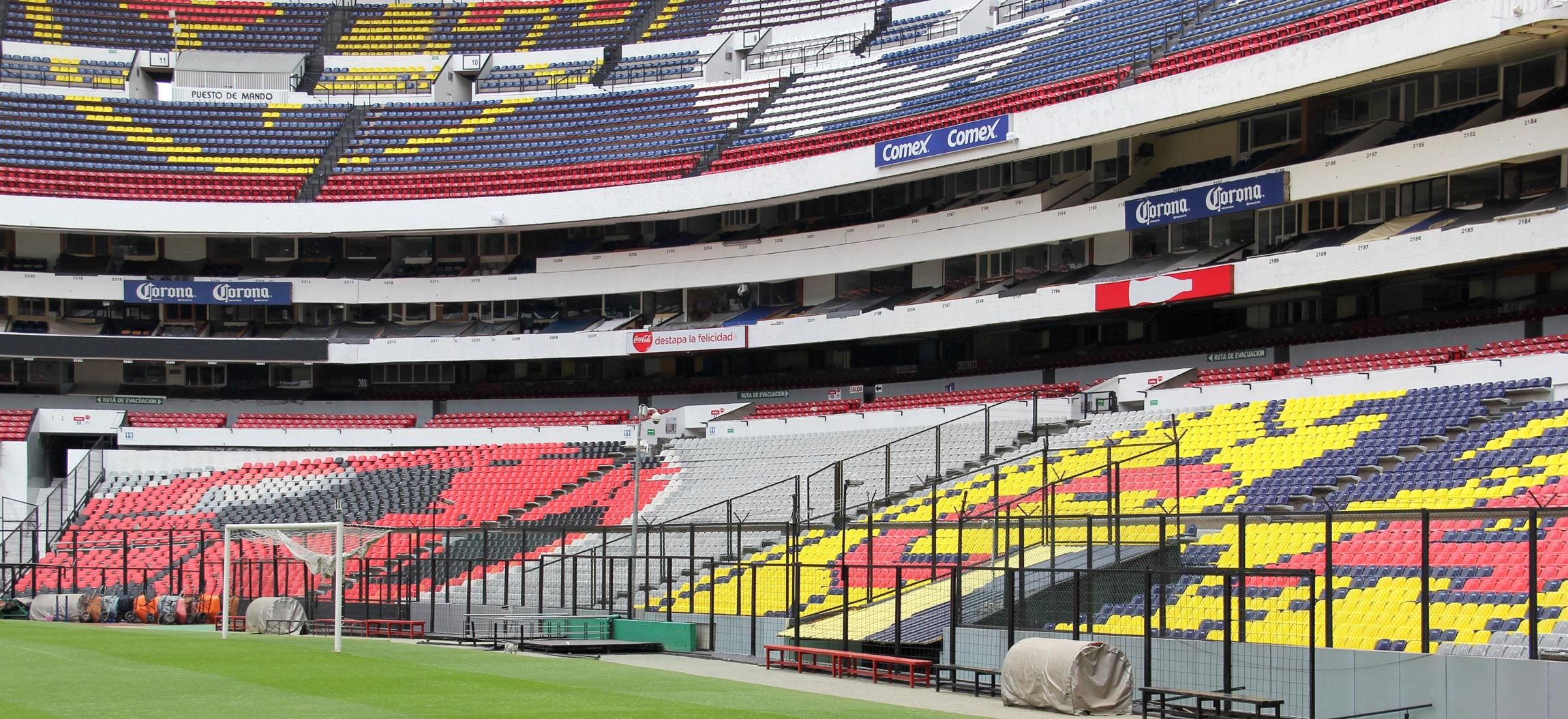A guide to crew lodging and hotels for remote construction projects

The pandemic may have put a pause on construction projects globally and around the country, but the building industry hasn’t just rebounded: now, it’s downright booming. In the first quarter of 2024, nationwide construction spending totaled $461 billion—ten percent higher than in Q1 of 2023.
As such, today's builders are picking up both domestic and international work. While this kind of growth bodes well for your bottom line, it does raise practical questions: Where will you house your crew? What safety regulations are you required to follow? And, perhaps most importantly, how can you help guarantee worker comfort to keep your staff at peak performance?
This guide was written with managers like you in mind. We’ll discuss the most important considerations when sending your team to a remote project and give insight into how you can save time, money, and energy in the process.
Tailored solutions for construction companies
Crew travel of any kind poses challenges, from finding transportation that will accommodate the entire team to managing last-minute booking changes. But dispatching construction staff to remote locations has its own set of complications:
- Complying with OSHA regulations – Standards set forth by the Occupational Safety and Health Administration (OSHA) must be fulfilled whether you’re managing a job in the next city over or clear across the country. These regulations mean the job site itself must comply with safety and health standards, such as guaranteeing your employees have access to a bathroom, employing nail gun safety measures, and implementing fall prevention strategies. But it also means you’re in charge of your team’s health and safety in terms of their lodging and transportation. With that in mind, be sure to stay on top of the most recent mandates and weave them into your company’s travel policy.
- Ensuring appropriate equipment and materials – Remote projects are often substantial in size and require an equally significant amount of equipment. Whether you choose to lease locally or send materials ahead of your workers, guaranteeing that your team has the supplies they need to perform their work is essential.
- Staying within budget – Thanks to inflation, everything from airline tickets to rental cars has gone up in price. Factor in the cost of labor and per diem expenses, and you’re looking at a lot of numbers to manage. Additionally, you may have to consider:
- Cleaning costs for uniforms and linens
- Equipment financing
- Permit fees
- Rent for an office space
That said, one of the biggest challenges in sending a crew to a remote location is making sure they have proper accommodations—the exact topic we’ll cover next.
Balancing project demands with comfort
Construction projects often demand a great deal of their laborers. Sure, this may vary according to each trade; your plumber may be less physically taxed at the end of the day than your roofer. But every person typically needs to keep the following in top condition to ensure optimal productivity:
- Strength
- Dexterity
- Stamina
- Flexibility
- Quick reaction times
- Balance and coordination
- Sound vision and depth perception
Without the above in place, workers may use poor judgment, make mistakes, or put themselves and others in jeopardy. Physical exhaustion may also affect overall work quality and motivation. All of this underscores the importance of striking a balance between the demands of your project and your team’s well-being, especially if the job calls for working on a tight deadline that requires unusually long work days.
The solution? Secure lodging that allows your employees to rest and rejuvenate so they can show up at 100%, ready to take on the day ahead.
Finding suitable short-term housing
Your remote job might take several weeks or several months. Regardless of your timeline, your accommodations should provide the comforts of home and foster restoration. Consider the following options before booking to find your best fit:
- Vacation rentals – Vacation rentals are typically fully furnished and often feature full kitchens. However, saving on takeout bills may not translate to overall housing cost savings. Since vacation rentals are usually repurposed single-family homes, builders may need multiple properties to house their entire crew. Plus, in remote areas or locales with high tourism demand, companies may have to contend with increased transportation costs to and from the job site.
- Man camps – “Man camps” are temporary modular encampments. They’re typically big, prefabricated compounds put up near (or directly on) the job site and disassembled after the work is finished. While man camps supply workers with the fundamentals (a bedroom, a bathroom, and an individual or shared kitchen), they’re not the most cost-effective strategy for small crews. They can also be cramped and impede your team’s ability to decompress after a long workday. Additionally, some man camps impose restrictions that can turn off your employees, like quiet hours.
- Furnished homes and apartments – Like vacation rentals, furnished homes and apartments can seem like a great option at first glance. But between increased logistical headaches, high costs of short-term rental housing, and potentially limited inventory, other housing solutions are usually more convenient and cost-effective for builders.
- Extended-stay hotels – Extended-stay hotels are a highly attractive option for remote construction accommodations, especially since many boast recreational facilities and complimentary services like pools, gyms, lightning-fast Wifi, and housekeeping—“extras” that may boost your crew’s contentment and motivation. They’re also the perfect option for housing at scale: your entire team will be in one place, limiting your transportation costs and simplifying logistics. Facilities like meeting rooms and business centers (complete with guest computers and printers) also make hotel for business travel an ideal location for safety meetings and give project managers a comfortable place to tackle clerical tasks (like purchase order review, change order requests, and invoice approval).
Maximizing efficiency and cost-savings
Ultimately, optimal lodging for your team comes down to the place that satisfies their wishes while remaining within your budget's constraints.
To that end, you should search for lodging that both maximizes your cost savings and promotes overall efficiency. Temporary worker housing should be:
- Appropriate for the size of your crew and the length of your stay
- In line with your projected expenses
- Located in proximity to your job site and, if applicable, amenities like grocery stores, gyms, and restaurants
- Near (or features) a parking lot large enough to hold all of the vehicles and equipment you’ll need
All-in-one platforms like Engine can help simplify the booking process by taking care of lodging logistics while lowering overall costs and earning you travel credits and reward points in the process. Even better? Engine offers budget-tracking assistance, consolidated billing, and insights on everything from your company’s travel trends to your savings.
Leveraging technology for efficient management
Getting your team safely to the job site and comfortably situated is only one part of the equation. We'd guess that overseeing the project and ensuring it unfolds according to plan is one of your most significant priorities.
As you know, construction has historically been an on-site, in-person endeavor. Advances in technology have radically changed that. Whether you plan to travel with your crew or manage them remotely, you may want to take advantage of technologies like:
- Cloud-based collaboration tools that enable your workers to access plans, data, and documents like expense forms and travel policies from wherever they’re stationed and at whatever time
- Video conferencing platforms such as WebEx to communicate directly (and more personably)
- Project management apps like Procore to streamline communication and update everything from plans to RFIs
- Task management apps like Fieldwire to assign duties, track progress, and set deadlines
Last but not least, conduct regular check-ins, whether you’re twelve feet away or 1,200 miles apart. Not only will this help you and your employees stay on task and organized, but it may also bolster their morale (and yours).
The role of Engine in simplifying lodging management
Researching lodging, negotiating rates for bulk bookings, comparing properties, handling booking changes, and establishing travel policies is enough to make even veteran construction managers’ heads spin—and all that before turning your attention to the logistics of your impending project.
Enter Engine Groups.
Our free software revolutionizes group bookings, offering white-glove service and unbeatable savings for your group trips and events. With access to more than 750,000 properties worldwide, you'll find the perfect accommodations for your group, ensuring they are energized and ready for the day ahead. Enjoy the benefits of a dedicated trip manager to coordinate everything from room blocks for meetings and conferences to extended stays for crews.
With exceptional 24/7 free customer support and mobile access, it's clear why groups consistently select our platform for their large-party bookings. Complete our group booking form today to receive your tailored lodging proposal within four hours.
Sources:
- US Census Bureau. Monthly Construction Spending, March 2024. https://www.census.gov/construction/c30/current/index.html
- OSHA. Construction industry. https://www.osha.gov/construction
- Illinois WorkNet Center. Construction laborers– physical demands. https://apps.illinoisworknet.com/cis/clusters/OccupationDetails/100333?parentId=110200§ion
- CDC. Work and fatigue. https://www.cdc.gov/niosh/topics/fatigue/default.html
- Affordable Corporate Suites. The pros and cons of staying at an extended stay hotel. https://affordablecorporatesuites.net/the-pros-and-cons-of-staying-at-an-extended-stay-hotel/
- Arnold & Itkin Trial Lawyers. What exactly is a man camp? https://www.arnolditkin.com/blog/oilfield-accidents/what-exactly-is-a-man-camp-/
- Home Matters. Pros and cons of renting a furnished apartment. https://ppmnva.com/renting-a-furnished-apartment/
- Autodesk Construction Cloud. 8 tips for remote work in construction. https://www.autodesk.com/blogs/construction/remote-work-in-construction/
- Fresh Books. 11 must-have free apps for contractors in 2024. https://www.freshbooks.com/hub/productivity/apps-contractors







